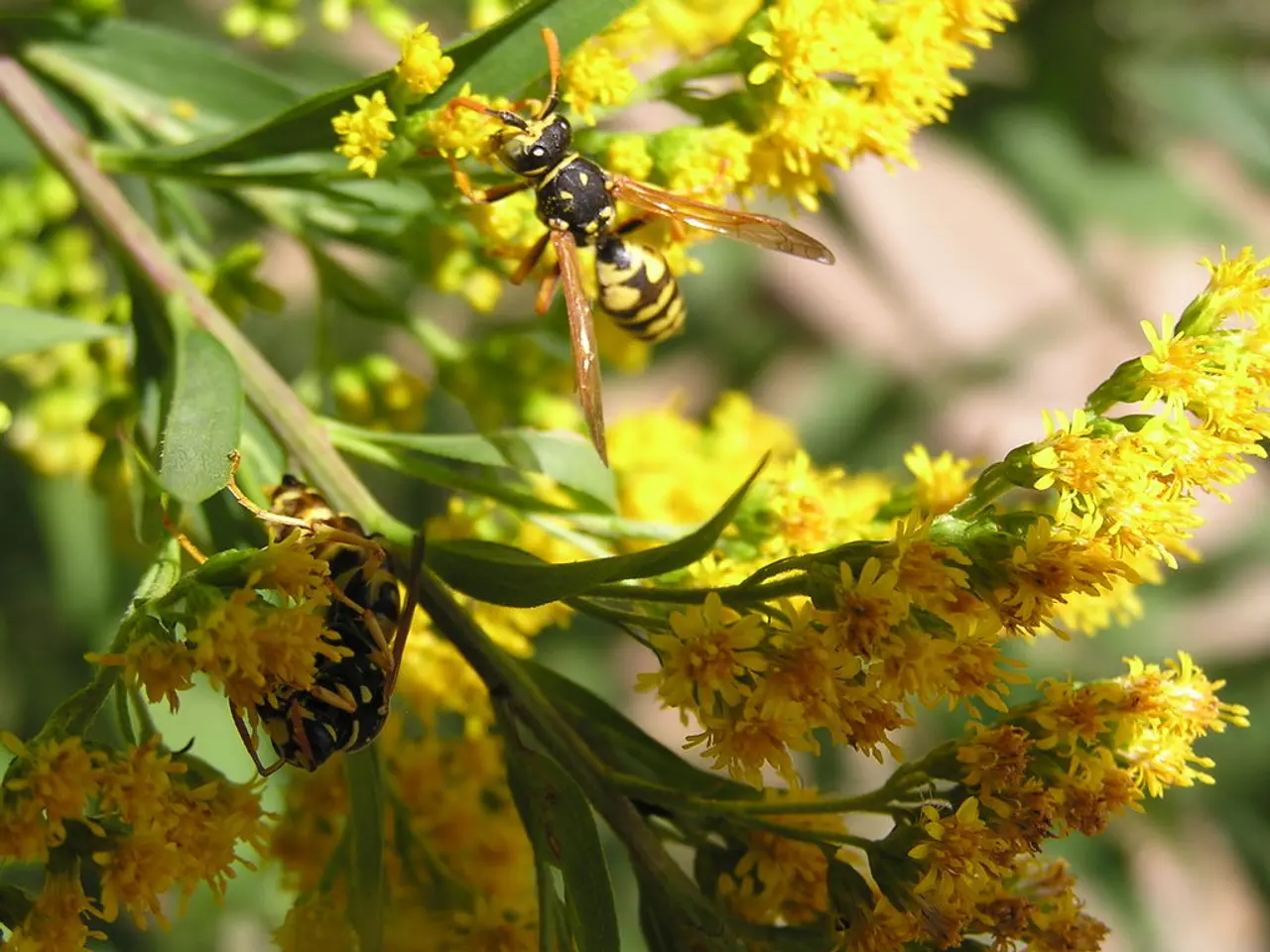Neem Oil's Impact on Aphids: Efficient Strategies for Pest Control in Gardens
In the world of gardening, aphids can be a persistent nuisance. However, fear not! Garden expert Glen, with over 15 years of experience, shares some natural and effective methods to combat these pesky insects.
One such method is the use of neem oil, a natural pesticide derived from the seeds of the neem tree. Neem oil works against aphids by disrupting their feeding and growth, preventing stunted growth and reducing the attraction for more pests. It spreads easily and stays effective for a longer period, making it cost-effective.
To apply neem oil for aphid control, mix 1 gallon of warm water with 2 tablespoons of vegetable oil, 1 teaspoon of liquid dish soap, and 3 tablespoons of neem oil. Shake well and spray the solution evenly on the top and bottom of leaves, stems, and foliage of affected plants, preferably in the evening to avoid sunburn. It's important to note that neem oil doesn't harm the soil and can even improve soil quality over time when broken down into organic matter.
However, always test a small part of the plant first to make sure it doesn't damage the leaves before applying neem oil. Also, avoid applying neem oil during the hottest part of the day to prevent leaves from burning in direct sunlight. Rain can wash away neem oil, so it's recommended to reapply after heavy rains to ensure effectiveness.
Neem oil is considered safe for animals and birds, as it is biodegradable and doesn't leave harmful residues. However, it may harm beneficial insects like bees and ladybugs, so it's essential to use it carefully and avoid direct contact with these insects.
Alternative methods to control aphids in your garden include insecticidal soap sprays, which are organic, non-toxic, and safe for use around children, pets, and edible plants. These soaps work by suffocating aphids on contact. You can purchase commercial versions or make your own at home by mixing mild soap with water.
Planting companion plants or trap crops that repel or attract aphids away from your valuable crops can also be effective. Plants like marigolds, catnip, dill, fennel, cilantro, chives, and peppermint have strong scents that deter aphids. Trap crops such as nasturtiums, calendula, and nettles lure aphids to sacrificial plants you can later remove.
Releasing beneficial insects such as ladybugs, which are natural predators of aphids and can significantly reduce their population, is another approach. Introducing beneficial insects like ladybugs, lacewings, and predatory mites to your garden can create a natural balance and help control aphid populations.
Washing your plants and tools after using neem oil helps reduce any unintended side effects. It's also recommended to test a small area first to ensure compatibility with your plants, as some may be sensitive to neem oil.
These methods avoid chemical pesticides and promote ecological balance in the garden while effectively managing aphid infestations. So, let's embrace nature's solutions and keep our gardens thriving!
[1] Organic Gardening: https://www.organicgardening.com/learn-and-grow/aphid-control [2] Gardener's Path: https://www.gardenerspath.com/plants/vegetables-and-herbs/how-to-control-aphids/ [3] The Spruce: https://www.thespruce.com/aphid-control-in-the-garden-2132736 [4] Fine Gardening: https://www.finegardening.com/article/aphid-control-in-the-garden-without-chemicals
Introducing beneficial insects like ladybugs, lacewings, and predatory mites to your home-and-garden can create a natural balance and help control lifestyle-threatening aphid populations. Alternatively, planting companion plants such as marigolds, catnip, dill, fennel, cilantro, chives, and peppermint can deter aphids from your valuable crops.




